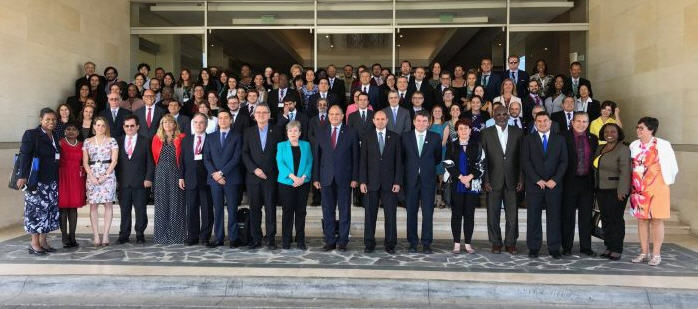
Peru was a signatory this past weekend, with 23 other nations, of the first regional agreement on environmental issues.
The Escazu Agreement, signed in San Jose, Costa Rica, focuses on granting and protecting access to environmental information, public participation and justice, underlined in Principle 10 of the Rio Declaration on Environment and Development (signed in Rio de Janeiro in June 1992).
Work first began in 2012, guided by the United Nations and the Economic Commission for Latin America and the Caribbean, ECLAC, and it is the first multilateral regional agreement of its kind in the world that recognizes the need to provide special protection measures for human rights activists related to the environment.
Peru’s Environmental Law Society, SPDA, which has been involved in crafting the document since the beginning, considers the agreement historic and also crucial because it effectively guarantees three fundamental rights — the right to access of information, to public participation and to legal recourse to Peru’s indigenous and peasant farming communities and to environmentalists.
This means, says SPDA, participation in decision-making on environmental management in an investment project’s life cycle, legal or administrative demands for remediation or restoration in cases of damage to the environment, and the State proactively making information public on natural resources.
According to Fernando Leon, the deputy minister in the Environment Ministry for Strategic Development of Resources, the process to reach the Escazu agreement “calls us to reflect on and consolidate our access practices” for ordinary citizens and the mechanisms they need to achieve environmental justice.
Peru is one of the most progressive countries in the region regarding the legal framework governing access rights, including mechanisms for consultation and regional participation, and working with the Justice department. Several district attorney offices for environmental issues, FEMA, operate in key areas and a new environment court has been established in the rainforest region of Madre de Dios — within weeks since its opening, the court has more than 50 cases to hear and hundreds of claims.
But challenges remain in achieving what SPDA refers to as environmental democracy. This includes ways to incorporate and strengthen an intercultural focus and the inclusion of indigenous communities in the decision-making processes on natural resources in their environment. Although prior consultation is recognized, within the International Labour Organisation’s Convention 169, it is frequently circumvented or only partially applied in development projects.





